Bass Buzzing Sound [Reason & Effective Way to Fix]
For bass players, encountering a buzzing sound while playing can be a frustrating and disappointing experience. This issue not only affects the instrument’s overall tone and playability but can also disrupt performances and practice sessions. In this comprehensive blog post, we will delve into the various reasons behind bass buzzing sounds and provide practical, effective solutions to help you get rid of this annoying problem.
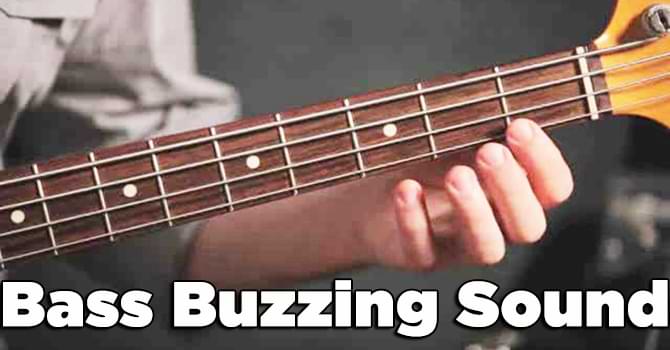
# Table of Contents =>
Why is my bass buzzing sound?
I. Understanding Bass Buzzing –
What is Bass Buzzing?
Bass buzzing refers to the unwanted rattling or buzzing sound produced by the strings when they come into contact with the frets or other parts of the bass. This issue can occur with both new and old strings and can be attributed to multiple factors.
Importance of Proper Setup
Having a well-set-up bass is essential to prevent buzzing issues. A proper setup includes adjusting the string action, checking the neck relief with the truss rod, evaluating fret condition, and ensuring the nut and bridge are functioning optimally.
II. Common Causes of Bass Buzzing –
a) Incorrect String Action
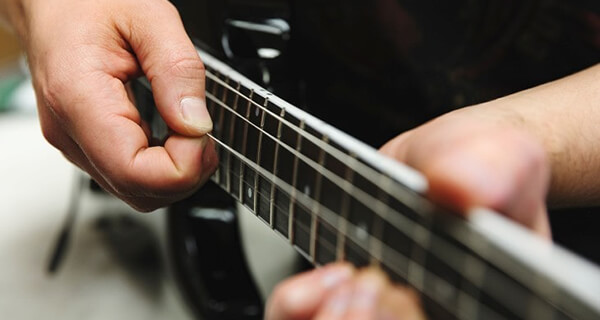
One of the primary reasons for bass buzzing is incorrect string action. If the strings are set too low or too high above the fretboard, they may encounter unnecessary contact with the frets, resulting in buzzing.
b) Uneven Frets
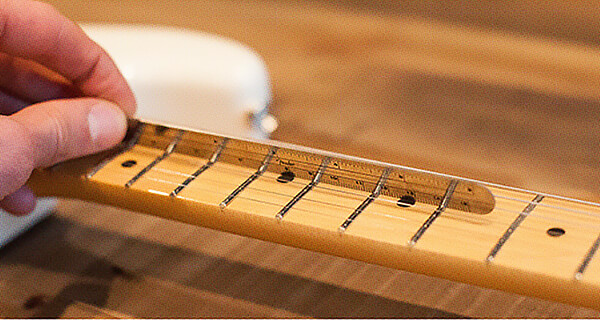
Frets that are not level or have become worn down over time can lead to buzzing. This issue is more prevalent in basses that have seen significant use.
c) Nut Problems
A poorly cut or worn nut can cause improper string height, leading to buzzing sounds when the strings vibrate against the first fret.
d) Bridge Issues
A faulty or inadequately adjusted bridge can disrupt the tension and alignment of the strings, causing them to rattle against the frets.
e) Truss Rod Mis-adjustment
The truss rod plays a crucial role in maintaining the bass’s neck relief. An improperly adjusted truss rod can cause an uneven curvature of the neck, leading to buzzing.
f) Poor String Quality

Low-quality or old strings can lose their tension and fail to produce clear tones, resulting in buzzing.
g) Environmental Factors
Changes in temperature and humidity can affect the bass’s setup, causing buzzing issues.
III. Effective Solutions to Eliminate Bass Buzzing –
a) Perform a Bass Setup
The first step in resolving buzzing problems is to perform a thorough bass setup. This involves adjusting the string action to the appropriate height, checking the truss rod to ensure the correct neck relief, evaluating the fret condition, and addressing any nut or bridge issues.
b) Truss Rod Adjustment

If your bass exhibits an improper neck relief, adjusting the truss rod may be necessary to achieve the correct curvature. However, it is essential to approach truss rod adjustments with great care, as mishandling can result in severe damage to the instrument.
c) Fret Leveling and Dressing
If the buzzing is caused by uneven frets, a skilled technician can perform
and dressing to ensure a smooth and even playing surface.
d) Nut Repair or Replacement
Addressing nut-related problems may involve repairing or replacing the nut to ensure the strings rest at the correct height.
e) Bridge Adjustment
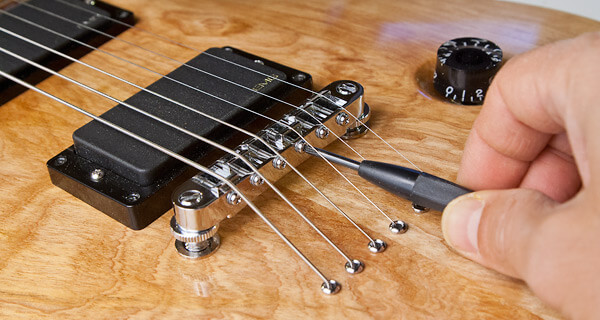
Fine-tuning the bridge height and alignment can rectify buzzing caused by bridge issues.
f) Choose High-Quality Strings
Investing in high-quality strings from reputable manufacturers can greatly reduce the likelihood of buzzing.
g) Regular Maintenance
Regularly cleaning and maintaining your bass can prevent issues like nut wear or bridge problems, which can contribute to buzzing.
h) Environmental Considerations
Maintaining a stable environment for your bass by controlling temperature and humidity fluctuations can help prevent buzzing.
IV. Preventive Measures to Avoid Bass Buzzing –
a) Proper Handling and Storage
Handle your bass with care and store it in a safe and suitable location to prevent damage that could lead to buzzing.
b) Professional Inspection
Schedule regular inspections with a qualified luthier or guitar technician to catch potential buzzing issues early and maintain your bass in top condition.
c) String Stretching
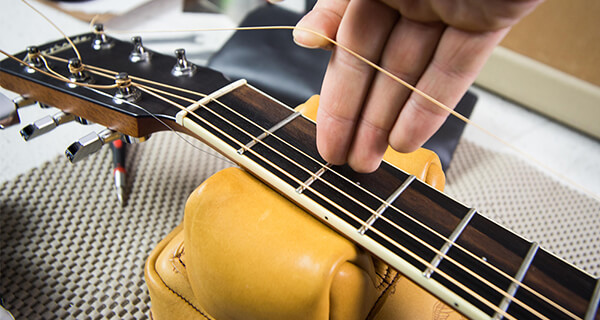
Properly stretch new strings after installation to minimize initial settling and reduce the chances of buzzing.
In the end, Bass buzzing sound can be a vexing problem for any bassist, but it is not an insurmountable one. Armed with a better understanding of the various causes and effective solutions outlined in this blog post, you can confidently troubleshoot and eliminate buzzing from your bass.
Remember, a well-maintained bass with a proper setup will not only produce clear and resonant tones but also enhance your playing experience. By implementing the preventive measures and seeking professional assistance when needed, you can enjoy seamless, buzz-free bass playing for years to come. Happy playing!
FAQs –
Q: Why is my bass making a buzzing sound?
Answer: There could be several reasons for a buzzing sound on your bass. Common causes include improper setup, low string action, uneven frets, loose hardware, or issues with the nut or bridge. It’s best to have a guitar technician assess and address the issue.
Q: Can changing the strings solve the buzzing issue?
Answer: Sometimes, old or worn-out strings can contribute to buzzing. Changing to a new set of strings might help if the problem is related to string condition. However, if the buzzing is caused by other factors like setup or hardware, new strings might not completely eliminate the issue.
Q: Is it possible for temperature and humidity to cause buzzing?
Answer: Yes, temperature and humidity changes can affect the neck’s curvature, which might lead to buzzing. A sudden change in environment can cause the neck to warp slightly. Properly humidifying your bass’s storage area and allowing it to acclimate before playing can minimize this issue.
Q: Can a buzzing sound be normal in some cases?
Answer: In some playing styles, a very slight and controlled amount of buzzing (known as “fret buzz“) can be intentional and contribute to the tone. However, excessive buzzing that affects sustain, playability, or tone is generally considered undesirable and should be addressed.
Q: Why is my bass buzzing only on certain frets?
Answer: Buzzing that occurs on specific frets could indicate uneven frets or an issue with the neck’s curvature. Uneven frets might need leveling, while neck curvature can be adjusted using the truss rod. Again, it’s recommended to have a professional assess the problem to determine the appropriate solution.
Last Updated on September 14, 2023 by Perry Garner


